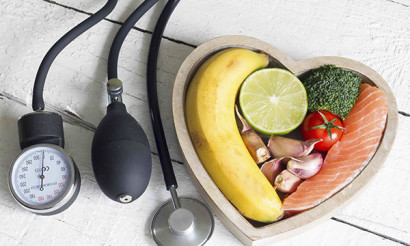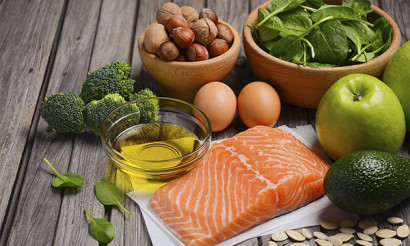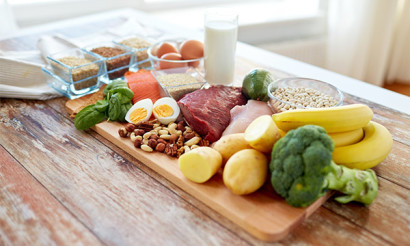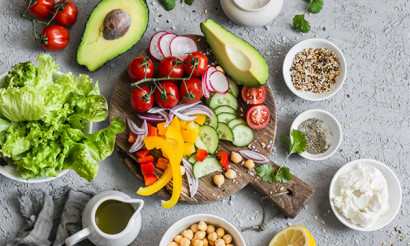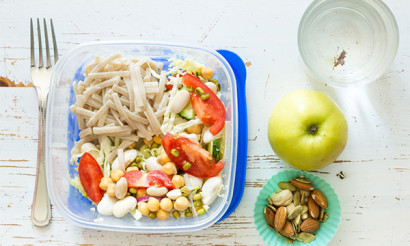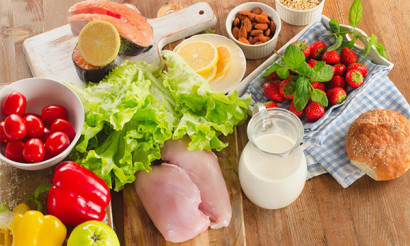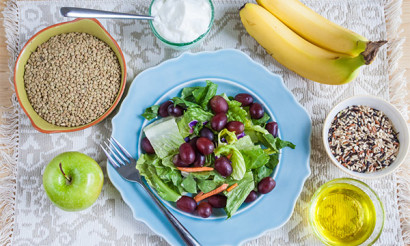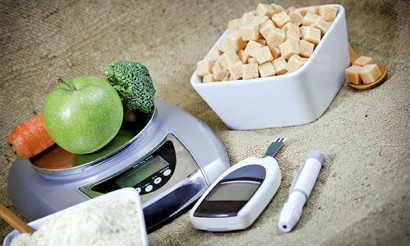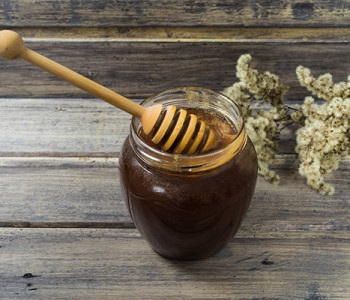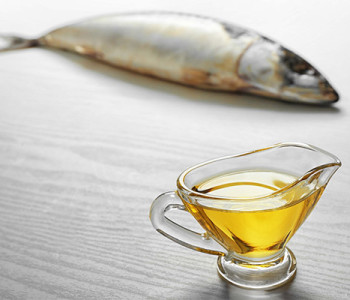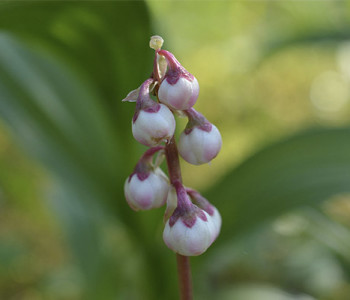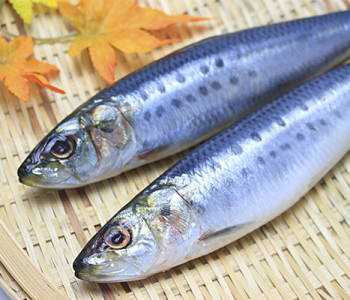Nutrition for colitis: what can and cannot be eaten?
A list of foods and drinks that you can and cannot eat with a disease such as colitis.
- What can and cannot be eaten with colitis
- Lentils
- Oatmeal
- Wheat porridge
- Corn porridge
- Couscous
- Black cumin oil
- Linseed oil
- Pumpkin seed oil
- Sea buckthorn oil
- Butter
- Olive oil
- Goat milk
- Ryazhenka
- Cottage cheese
- Condensed milk
- Milk
- Kefir
- Yogurt
- Fat
- Corn
- Beet
- Tomatoes
- Garlic
- Eggplant
- Celery
- Pumpkin
- Cucumbers
- Zucchini
- Broccoli
- Potatoes
- Carrot
- Cauliflower
- Turmeric
- Honey
- Propolis
- Sea kale
- Squid
- Dill seeds
- Flax seeds
- bitter chocolate
- Sugar
- Oatmeal cookies
- Ice cream
- Halva
- Marshmallows
- Tomato juice
- Cabbage juice
- Carrot juice
- Pomegranate juice
- Cognac
- Coffee
- Kissel
- Beer
- Mineral water
- Rosehip broth
- Red wine
- Raisins
- Mint
- Dill
- Nettle
- The apples
- Apricots
- Garnet
- Peaches
- Pear
- Lemon
- Oranges
- Bananas
- Kiwi
- Avocado
- Cherry
- Grape
- Blueberry
- Strawberry
- Watermelon
- Sea buckthorn
- Dogrose
- Blueberries
- Viburnum
- Raspberry
- Omelette
- Boiled eggs
- Quail eggs
- Baked apples
- Pasta
- Mayonnaise
- Pea soup
What can and cannot be eaten with colitis
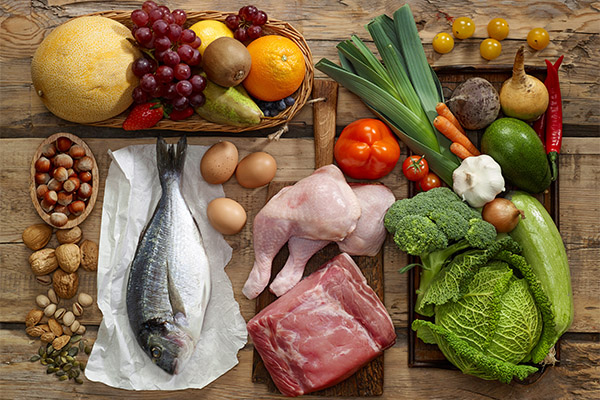
Lentils
Both in the acute form of inflammation of the intestinal mucosa, and in the chronic course of the disease, legumes must be treated with caution. And experts often advise people with colitis to limit themselves to eating. The thing is that this type of product is oversaturated with plant proteins and heavy fibers, which are heavy enough for digestion and absorption by the intestines.
But if it is difficult to refuse their use or for some reason it is impossible, you just need to add turmeric, dill or parsley. They reduce flatulence, and also accelerate the dissolution of solids.
Oatmeal
In the early days of the acute period, patients with colitis should generally minimize the amount of food consumed. This requirement is due to the pronounced symptoms of the disease, which gives patients incredible suffering. But on the 2-3rd day it is already possible to introduce into the diet a mucous decoction of oatmeal on water.
With the improvement of well-being, the patient will be able to switch to light cereals and soups. During remission, it is allowed to add a little milk during the preparation of the dish.
Wheat porridge
With colitis, wheat porridge will be very useful, because it normalizes the work and intestinal microflora. It soothes the inflamed mucosa of the diseased intestines and normalizes stool. But with colitis accompanied by bloating, it is better to refrain from using it.
Corn porridge
This pathology is an inflammatory bowel disease. Since it is recommended that foods that will not irritate the intestines and enhance its motility, it is better to refuse corn porridge.
Couscous
Patients with inflammatory bowel disease are recommended to use only liquid cereal and only in small quantities.
Black cumin oil
Due to its unique properties, black cumin oil can also be used to treat colitis. When used correctly, this product will help:
- normalize the patient’s stool;
- reduce acute pain;
- get rid of flatulence.
Doctors note that the product can be introduced into complex therapy only after consulting with the attending physician and assessing the general condition of the patient. Remember - self-medication can lead not only to a deterioration in the general condition, but also to the development of concomitant diseases!
Linseed oil
Flaxseed oil is often found in the preparation of diet food for patients with colitis. This is due to the fact that the product has a beneficial effect on the gastrointestinal mucosa, protects it by enveloping, and helps the feces move more easily through the intestines.Also, the plant substance relieves the inflammatory process and pain, and also treats erosion, thereby facilitating the process of defecation.
Pumpkin seed oil
In this disease, during an exacerbation, drinking pumpkin oil is not recommended, so as not to provoke a worsening of the situation. However, during the period of remission, this product is necessary to eliminate all the consequences of inflammation and prevent its recurrence.
Sea buckthorn oil
People who experience intestinal colitis know that this ailment is incurable. You can alleviate your condition only by adhering to proper nutrition and periodically removing symptoms with medications.
Sea buckthorn oil can reduce the frequency of exacerbations. In this case, its benefit and use is similar to that of other bowel diseases. It is necessary to take it, as mentioned above, only after the approval of the treating gastroenterologist.
Butter
With this disease, it is forbidden to eat foods that contain trans fats. Butter is on the list of these products. It is worth noting that in some cases with colitis, 40-50 grams (not more) of butter per day are allowed.
Olive oil
In acute colitis, cold-pressed oil is included in the diet, and is also used for microclysters. This type of local treatment contributes to the rapid healing of the injured intestines. The procedure is recommended to be performed at night so that the damaged mucosa has time to absorb all the beneficial components.
In addition, any oil well lubricates the internal walls of the intestine, which greatly facilitates the passage of feces. As shown by the results of clinical studies, patients with colitis, who were regularly taken orally in a tablespoon of olive oil in the morning, managed to significantly increase the period of stable remission.
Goat milk
The use of cow's milk with colitis is fraught with bloating, the appearance of heaviness, so it is excluded from the diet. It is absolutely opposite in its effect on the body. Doctors recommend eating only goat. Due to its composition, it positively affects the digestive tract, relieves symptoms of colitis, and normalizes microflora.
Ryazhenka
Ryazhenka is allowed for inflammation of the intestine only in the chronic form in a state of remission and not more than 200 ml per day.
Cottage cheese
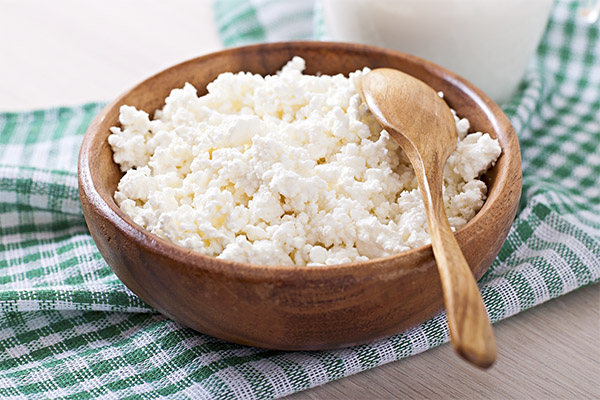
In case of exacerbation of chronic colitis, rubbed cottage cheese is allowed in the patient's diet. At the stage of remission of colitis, it is also recommended to consume a sufficient amount of this treat. Colitis with constipation requires the inclusion of fatty cottage cheese in the diet, with the manifestation of colitis with diarrhea, a fresh product with a lower fat content is allowed.
Condensed milk
It is forbidden to use condensed milk with colitis. Otherwise, there is a risk of exacerbation of the disease and deterioration of the patient's condition.
Milk
This is a severe inflammatory bowel disease, which even during a period of remission requires a fairly strict diet. Cow's milk is completely excluded from it. When digesting the aforementioned protein A1, a substance is released, abbreviated as BKM 7 (beta-casomformin). It does not affect healthy people. But if there is even a small lesion of the intestinal walls, it worsens their condition and enhances inflammation due to its oxidative properties. So you have to refuse milk.
Kefir
The situation is considered individually, as flatulence and intolerance to the intestines of lactose with colitis can cause deterioration. If, after drinking kefir, one feels better and eliminates the appearance of gastrointestinal problems, it is important to include the product in the diet in order to saturate the body with useful micro- and macrocells.
Yogurt
Yogurt is not only included in diet food, but is also useful due to its rich content of lactic acid bacteria. With colitis, it has a beneficial effect on the regulation of the patient's stool.It is recommended to use yogurt with natural additives - dried apricots, prunes, fruits and wheat bran. The fat content of the purchased product should be minimal, and additives should be absent.
Fat
The disease requires the obligatory observation of a specialist, as well as a strict diet, which forbids the use of lard.
Corn
Doctors are allowed to use corn with colitis, but only in the form of gruel. Porridge will be a good source of carbohydrates and will help the patient eliminate constipation. It is advisable to take the product 2 hours before taking the main meal. But the amount of cereal consumed is limited. If a healthy person can eat up to 200 g of product per day, then 2 tablespoons are enough for a patient.
Beet
With inflammation of the intestinal walls, it is not recommended to eat raw vegetables, including beets, since they stimulate the work of the body. Excessive stress during exacerbation of the disease can cause pain and diarrhea. In the chronic stage or during the period of remission, the use of boiled beets is permissible. Begin to add it to the diet with caution, gradually bringing up to 100-200 g per day. Boiled root crop helps restore metabolic processes in the body, has a beneficial effect on the mucous membranes of the gastrointestinal tract and helps to prevent attacks of colitis.
Tomatoes
Only fresh peeled tomatoes should be present in the patients ’diet. Due to its properties, the product will help protect the intestinal mucosa from the negative effects of a number of factors.
Garlic
When colitis, garlic can be added to food in small quantities. This normalizes the intestines, and also helps in the treatment of inflammation of the digestive system. It is recommended to consume about 2 grams of garlic powder 2 times a day after meals. This mode will allow you to quickly adjust the chair and relieve diarrhea that occurs with colitis. But at the same time, do not forget about the individual characteristics of each individual person, so before you start using a burning vegetable, you should consult a specialist.
Eggplant
Eggplant, like any food, can lead to a severe complication of the condition with undiagnosed colitis. Subsequently, the doctor may include steamed or baked eggplant in the diet. Heat treatment is extremely important, it should be added to the recommended 10-15% more cooking time in the recipe.
Celery
The essential oils contained in celery can increase the acidity of gastric juice, which is an aggressive medium and can cause the development of putrefactive processes. They can aggravate the course of the disease. Therefore, with colitis, it is recommended to limit the use of celery.
Pumpkin
When pricking, pumpkin is allowed to be consumed, but only in a baked or slightly fried form, while the product should not have a rough crust. You can also include raw and dried seeds in your diet.
Cucumbers
A diet for colitis should be made individually for each patient. Salted and pickled cucumbers should be eliminated completely, but fresh ones can be used in the preparation of the patient’s daily menu.
Zucchini
With this pathology, you can not eat fried zucchini, pickled vegetables, as well as pancakes and pancakes from them. But boiled squash will be only useful.
Broccoli
With colitis or Crohn's disease, the patient has a constant inflammation in the stomach. There is a real battleground between the immune system and bacteria. A recent discovery made by a group of Swedish scientists showed that eating broccoli helps treat the disease. Broccoli, due to the presence of vitamins and minerals, increases the protective ability of the immune system, and dietary fiber removes not only toxins from the body, but also pathogenic bacteria.
Potatoes
Potatoes are on the list of allowed foods for this disease. However, you need to cook it with a minimum amount of salt.
Carrot
If the intestinal mucosa is damaged, it cannot be irritated with coarse fiber, so carrots in such cases are used in boiled or baked form, as well as as mashed potatoes. Then it will help restore health faster. For serious forms of the disease, you should consult your doctor before introducing the product into the diet.
Cauliflower
Against the background of exacerbation of colitis, cauliflower should not be used. Usually, during this period, treatment consists in fasting, and then in a gradual transition to sparing food. Of all types of cabbage during the diet, only cauliflower is allowed only during the period of subsidence of symptoms. Patients with colitis can consume such a stewed or boiled vegetable. Fried cabbage with this disease is unacceptable.
For colitis with diarrhea, it is recommended to limit the use of cauliflower. If colitis occurs against a background of constipation, this vegetable should be taken regularly, as it enhances intestinal motility.
Turmeric
Experts speak ambiguously about the benefits of turmeric in colitis. This product has recently been generally forbidden to use for intestinal inflammation. But recent scientific studies have proven that spice can speed up the healing process. But to decide on the inclusion of this unusual product in the treatment complex can only be a doctor, but not the patient or his relatives. Colitis is a serious illness. Therefore, any initiative in its treatment is unacceptable.
Honey
Honey is considered a natural anti-inflammatory product, so it is not only possible to use it with a similar disease, but also extremely useful.
Propolis
Colitis in the acute phase is characterized by intense pain, flatulence, upset stool in the form of constipation or diarrhea. All these unpleasant symptoms cause discomfort and suffering to a sick person. It is possible to alleviate the patient's condition by simple means with propolis. It is enough to take a tincture of a bee product in alcohol of a weak (10%) concentration of 30 drops three times a day, so that the inflammatory process subsides. Previously, the drug should be diluted with milk or water (100 ml). This gentle method of treatment should be followed for the first 5-7 days, and then you can take a more concentrated solution (30%). The dose can be increased to 40 drops.
Microclysters are effective for colitis: 4 g of honey product per 100 g of boiled water. After daily infusion of the solution, it can be used for the procedure. Before microclyster, it is necessary to cleanse the intestines well.
Sea kale
Cabbage in the stomach swells, and, moving further along the digestive tract, irritates the receptors of the mucosa. Therefore, with an acute form of colitis (or with an exacerbation of a chronic disease), it is contraindicated.
Squid
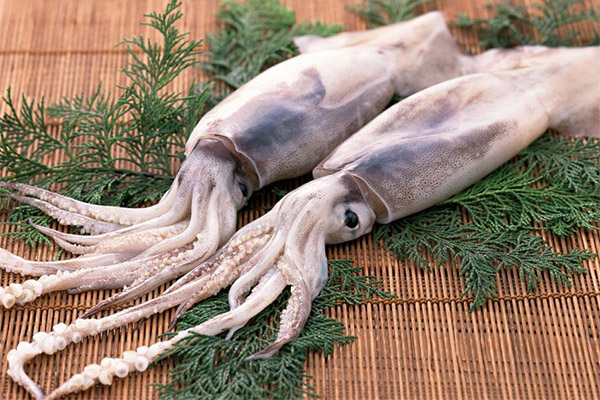
With colitis (pathological inflammation of the mucous membrane of the large intestine), strict diet is required. But it allows inclusion in the menu and seafood, including squid. Again, due to its rich composition and at the same time easy digestibility, it will not bring any potential harm to health and will not aggravate the course of the disease. It can be added to the diet in any form of preparation, except frying.
Dill seeds
Dill seeds in the form of tincture will help overcome this disease, restore the digestive tract. They inhibit the pathogenic flora, which is the cause of the disease, and also eliminate the foci of infection in the pancreas and bladder.
Flax seeds
This is an inflammatory bowel disease in which it is not recommended to take drugs that enhance peristalsis, including flaxseed.
bitter chocolate
In general, in the absence of a food allergy, colitis patients may consume a small amount of dark chocolate. It should be borne in mind that the product may have a mild laxative effect.Some studies have described the relationship between exacerbation of Crohn's disease and ulcerative colitis with the use of dark chocolate, so the best choice would be to limit your intake to a minimum volume.
Sugar
Inflammation of the colon mucosa is called colitis. For many diseases associated with impaired healthy functioning of the organs involved in digestion, doctors advise eating simple food. It should not bear the load during digestion. Sugar, despite the content of easily digestible carbohydrates, does not belong to such food, so its use should be minimized.
Oatmeal cookies
Since colitis has several forms of its exacerbation - acute and chronic, then the diet will be different at different stages. With this disease, doctors recommend for several days not to take any food at all, and after fasting, they will prescribe the patient a strict diet, in which you can forget about store sweets. Therefore, purchased oatmeal cookies should be excluded from your usual diet, but you can sometimes treat yourself to the homemade version of sweets.
Ice cream
Unfortunately, the sweet tooth, with colitis, doctors categorically forbid eating any products with sugar, including ice cream. No culinary tricks and the production of natural homemade ice cream will not help get rid of the negative effects that will be caused by sweetness. Treating colitis involves strictly regulating nutrition and eating habits. To get rid of the disease from patients, strict adherence to a diet that completely eliminates sugar, which is so much in a cold dessert, is required.
Halva
Due to the content in halva of many useful substances and vitamins, with colitis it can and should be eaten. In particular, in this case, insoluble dietary fiber has a positive effect on the digestive tract.
However, there are certain nuances. So, for the preparation of halva, sunflower seeds are used, which can accumulate various carcinogens. And with prolonged storage of harmful substances becomes more than useful, which is dangerous with a disease such as colitis.
Marshmallows
Experts say that marshmallows with intestinal colitis are useful due to the normalization of microflora. The protein, which is part of the product, strengthens the intestinal wall, so that inflammation is removed and the most unpleasant symptoms of colitis are eliminated.
Tomato juice
If colitis is detected, only freshly made home-made tomato juice is allowed. The purchased product may contain dyes and various preservatives that may harm the injured gastrointestinal tract. It is worth noting that with this disease, it is necessary to dilute the juice with boiled water, otherwise the intestines will be slowed down.
Tomato juice in case of colitis will be a good tool that will stimulate the intestines and also protect against the possible occurrence of cancer. Drink such a drink before meals, without adding salt.
Cabbage juice
Do not give up this natural drink for patients who suffer from colitis. In limited quantities, cabbage juice will help improve the patient's general condition, relieve unpleasant manifestations of the disease and speed up the healing process.
Carrot juice
Gastroenterologists strongly recommend that patients suffering from colitis completely exclude carrot juice from the daily menu during the acute period. At this time, the patient is shown therapeutic fasting, the purpose of which is to relieve acute symptoms.
The use of this drink is allowed only after stabilization of the patient's condition. However, drinking juice in large quantities is not recommended. In this case, only the attending physician can establish the permissible amount and frequency of drink consumption. In some cases, restrictions may be minimal, while in others a strict diet will be necessary.
Subject to the recommendations of the attending physician, carrot juice will not only help relieve the unpleasant symptoms of colitis, but also saturate the depleted body with nutrients.
Pomegranate juice
The use of pomegranate juice is considered individual - with the permission of the doctor, since its main task is to develop intestinal bacteria that can reduce the level of inflammation. As a result, the sensation of inflammation and burning is removed.
Cognac
Colitis is a serious disease in which the use of cognac is strictly prohibited. This is based on the fact that it is alcohol that can lead to the development of this pathology. Once in the body, cognac causes inflammation of the intestinal mucosa, and also violates the peristalsis of the rectum. That is why cognac, like any other alcohol, is forbidden to use for colitis at any stage of the course of the disease!
Coffee
With the development of colitis, damage to the intestinal mucosa occurs. Drinking coffee in this case is strictly prohibited, as well as strong tea. This is due to the fact that the drink negatively affects the mucous membrane of the organ and provokes the spread of the pathological process.
It should not be included in the diet for colitis and coffee with milk. Despite the fact that milk reduces the negative impact of the drink, it is also capable of causing irreparable harm.
Kissel
If colitis is manifested by the development of diarrhea, it is recommended to cook fruit or berry jelly. This drink will envelop the intestines, absorbs all harmful components and will have a fixing effect due to the tannins in its composition.
Before using such an auxiliary method of treating colitis with diarrhea, it is recommended to initially determine the cause of this disorder. In this case, only a treat prepared independently at home should be used. It is better to refuse briquettes. It is believed that if you drink such a drink three times a day, the patient's condition will soon improve.
Beer
With colitis, beer is on the list of prohibited foods. The fact is that alcohol in this case violates the peristalsis of the rectum, which provokes the development of colitis. People who suffer from this pathology and continue to drink alcohol, in particular beer, are more likely to suffer from constipation, since they do not consume enough food.
Mineral water
Mineral water not only copes with thirst, but also has a beneficial effect on the inflamed walls of the intestinal mucosa. It is necessary to choose a drink suitable for the mineral composition taking into account the recommendations of the attending physician. With increased motor function of the intestine, water with a low mineralization rate is prescribed. The duration of therapy is three weeks. The liquid should be consumed in a warm form (not lower than 36 degrees).
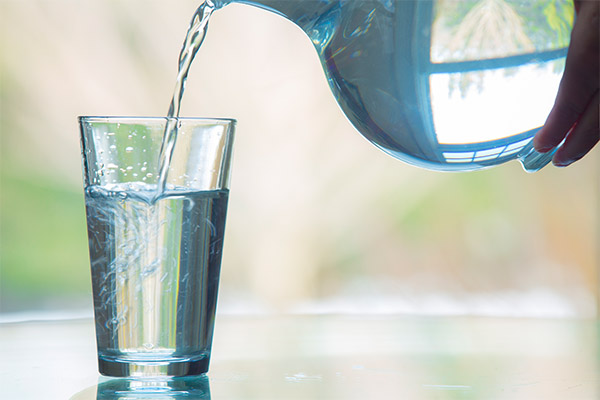
If bowel function is reduced, then the patient is shown the use of mineral water with an average level of mineralization. The temperature of the drink should be 20 degrees. The treatment lasts three weeks.
Studies have shown that when all recommendations are followed, the following changes are observed:
- normal intestinal motility is restored;
- there is an increase in the regenerative ability of the mucous membrane;
- the inflammatory process decreases.
Microclysters using mineral water restore the intestinal microflora and improve the well-being of the patient. To do this, the water is heated to 37 degrees and introduced rectally in a small amount. A single dose should not be more than 50 ml.
Rosehip broth
Rosehip is used as an anti-inflammatory agent for colitis. The healing components that make up the berries of the plant have a strengthening effect on the intestines. For this reason, experts recommend using a rosehip broth for colitis. It is allowed to use the infusion not only during the period of remission, but also during the acute phase.
Recipe for infusion with colitis: 25 g of wild rose flowers are poured with boiling water in an amount of 200 ml and covered with a lid. The resulting infusion is recommended to use three times a day. A single dose is 25 ml.The tool helps to reduce pain.
Red wine
This disease is inflammatory in nature, but the reasons for its development have not been established. Some experts believe that red wine containing antioxidants has excellent anti-inflammatory properties. They recommend drinking it as a medicine for 2 tbsp. three times a day half an hour before meals. The duration of such a course should be no more than a month. However, this treatment technique has its opponents.
Raisins
With colitis, experts do not recommend, and in some cases even forbid, raisins. If during the course of the disease the patient suffers from diarrhea, then dried berries should not be eaten. In case of constipation, you can include them in the diet, but after consulting with your doctor, you should use dried grapes only as part of other dishes.
Mint
Colitis is an inflammation of the mucous membrane of the colon. The disease can occur in acute and chronic form. To alleviate the symptoms of this pathology, it is recommended to pour 30 g of mint herb with 2 cups of boiled water and insist 30 minutes. After this period, the liquid must be filtered and consumed 100 ml twice a day before meals.
Dill
With colitis, dill can also be included in the diet. An effective remedy for colitis is tea from dill seeds.
Nettle
For patients with chronic colitis, the following prescription is recommended: in equal proportions mix burning leaves, peppermint, ordinary pharmacy chamomile and dry blueberries. Exactly 3 tablespoons pour the mixture with 3 cups of prepared boiling water and then insist for at least 4-5 hours in a thermos or in a saucepan with a lid wrapped in a blanket. Then strain and squeeze the raw materials. Ready to take the infusion warm one cup a day for half an hour before eating.
The apples
With colitis, patients are forced to follow a strict diet so as not to exacerbate the disease. Unfortunately, many fruits are banned, but apples have defended their right to eat during illness. The pectin contained in the fruit normalizes stool, and volatile production perfectly copes with the destruction of pathogenic bacteria. Doctors recommend that with colitis accompanied by diarrhea, eat fresh apples, with constipation - baked fruits on an empty stomach. In this case, in any case, the apple should be peeled off, because it contains insoluble fiber that can harm the inflamed intestines. The daily rate is determined by the doctor, focusing on the patient's condition and the features of the diagnosis.
Apricots
Apricot fruits are contraindicated in patients suffering from irritable bowel syndrome. This product has fiber, which leads to the rapid advancement of the contents of the large intestine. If colitis is detected, the consumption of this fruit is dangerous for violation of the stool, as well as the development of cramping in the abdomen.
Garnet
Pomegranate is useful for any diseases of the digestive organs. The product is also useful in the diet of a person who is diagnosed with colitis. It’s not without reason that pomegranates are called an intestinal nurse. This is due to the fact that these fruits inhibit the development of pathogens, without affecting beneficial bacteria. In the treatment of colitis, a pomegranate-based agent can also be used. To do this, you need to prepare a decoction or infusion. However, it is worth noting that the therapeutic effect is achieved only with a disease that is accompanied by diarrhea, since the fruit has astringent properties. Also in the pomegranate peel contains elements that have an anti-inflammatory effect, providing quick healing of the damaged mucous membrane of the organ.
It must be remembered that in pure form, drinking pomegranate juice for people with colitis is contraindicated, since the drink can be irritating. For this reason, you should dilute the product with water and drink it through a straw.
Peaches
All fruits have a lot of fiber in their composition, which is essential for the digestive tract. Peach in this case is no exception. However, it must be remembered that with inflammation of the intestine, only soluble fiber can be used. Insoluble form can only aggravate the condition. Therefore, doctors advise patients with colitis with extreme caution to take such fruits.
Pear
It is forbidden to eat a pear in its raw form. Coarse fiber will irritate the intestinal wall and lead to deterioration. Based on an objective diagnosis, a doctor can include baked, boiled, stewed pears in small quantities in the diet. Juices and compotes do not contain fiber, so they can be freely added to the diet.
Lemon
Colitis is a serious disease that requires an early diagnosis. In no case should you eat lemon, other citrus fruits, nuts, tomatoes and even milk. Only after the diagnosis is established, the attending physician will be able to prescribe a diet. In some chronic forms of colitis, lemon is used to a limited extent in other foods or drinks.
Oranges
This disease affects the colon. Orange in patients with colitis causes a state of discomfort, therefore it is better not to use it.
Bananas
It is necessary to strictly follow the prescribed diet. It is recommended to include bananas in it, and they are allowed even during periods of exacerbation of the disease.
Kiwi
Experts recommend abandoning the consumption of kiwi with colitis, since this product has a laxative effect, which is undesirable in this case and can provoke an aggravation of the symptoms of the disease.
Avocado
In case of intestinal diseases, including bacterial diseases, infusions of leaves and seeds of avocado are used. Such a drug helps to kill pathogens, relieve fever, soothe irritation and heal the mucous membrane. At the same time, an avocado in itself will become a valuable nutritional component, will support the body's forces in the process of combating such a delicate disease.
Cherry
Colitis is a fairly common disease in which patients are forbidden to eat most berries and fruits. During remission, you can let yourself enjoy the fruits of cherries, but you should be very careful. You can eat no more than 200 g of fresh fruits per week. But the berries that have undergone heat treatment, namely jam, can be enjoyed. The body will be saturated with useful trace elements and will not receive much harm. In any case, you need to consult a doctor, because only a specialist is able to determine all the possible risks from consumption.
Grape
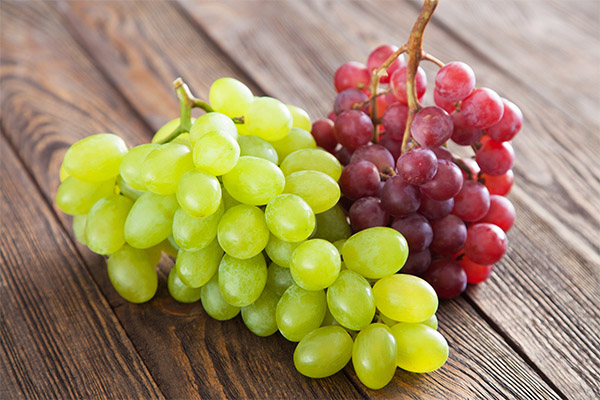
With a disease such as colitis, grape consumption is strictly prohibited. This is due to the fact that the inflamed mucosa cannot digest food with a high fiber content, and there are plenty of it in grapes. In addition, a frequent companion of colitis is intestinal dysbiosis. The fruit sugar contained in the fruits accelerates the reproduction of harmful bacteria and thereby destroys the remnants of the beneficial intestinal microflora.
Blueberry
Colitis develops against the background of inflammation of the intestinal mucosa. The main symptoms are pain, swelling and impaired stool. Blueberries will help get rid of unpleasant symptoms.
The use of berries in the diagnosis of colitis is not prohibited. But they should be eaten with caution and after consulting a specialist.
Strawberry
As with any other inflammatory diseases of the gastrointestinal tract, fresh strawberries are not recommended for colitis, since acids and fiber in this case will only aggravate the problems.
Watermelon
With exacerbation of colitis, watermelon should not be consumed at all. And even during remission, care must be taken - no more than 200 g of pulp per day.
Sea buckthorn
In the acute form of this disease, sea buckthorn is strictly contraindicated. In the stage of persistent remission, you can drink compotes and fruit drinks to normalize digestion and improve the condition of the mucosa.
Dogrose
Doctors believe that rose hip should be used for this disease. It contains a lot of carotene, pectins, various acids, etc. With colitis, it is used as a very effective anti-inflammatory agent.
It is allowed to use the plant for colitis during periods of exacerbation, and during remission. For example, if you chew a couple of rosehip leaves during nausea, which is an almost constant companion of the disease, nausea can be muffled. Also, decoctions from this plant help with bleeding, which also often occurs with colitis.
Blueberries
Experts claim that eating blueberries helps eliminate symptoms of colitis. This is due to its anti-inflammatory properties.
Due to the content of dietary fiber, stools are normalized, bloating passes and the general condition of the patient improves.
Cold infusion
To eliminate the symptoms of colitis, it is recommended to use a cold infusion of dried berries. Pour 15 g of fruit in the evening with a glass of cold water and leave overnight. Over the next day, use the resulting infusion in several stages.
Viburnum
Colitis is a disease that develops on the mucous membrane of the colon. Symptoms of this ailment are unpleasant, and sometimes even dangerous. The causes of this disease can be different. With proper use, berries will please with useful properties in the treatment of this disease. Due to its rich vitamin and mineral composition, viburnum contributes to the normalization of stool, regardless of whether colitis manifests itself as diarrhea or constipation. In addition, the beneficial substances of the berry prevent the development of inflammatory processes in the mucosa of the large intestine. Also, the antispasmodic effect of the product is manifested.
Raspberry
Experts argue that fresh raspberries with diseases such as colitis can exacerbate the pathology and the development of serious complications. The reason for this ban is the presence of small seeds in the berries, which can irritate and injure the mucous membrane of the gastrointestinal tract, which is extremely undesirable for colitis.
But freshly squeezed juice and decoctions from the leaves of this plant in moderate amounts can positively affect the course of the disease and help relieve unpleasant symptoms.
Omelette
The diet to be followed with colitis should be aimed not only at eliminating all products that irritate the intestines, but also at observing the nutritional value of dishes. Boiled, raw or fried eggs with colitis are strictly prohibited. But steam omelette cooked on water is not only allowed, but also recommended to be included in the diet. It is important to comply with the norm - 2 eggs per day.
Boiled eggs
Intestinal colitis can be of various types and may be accompanied by diarrhea or constipation. If pricks with diarrhea, then hard-boiled chicken eggs must be present in the diet. Eggs are products that normalize stool and soothe the intestines.
As mentioned above, they are rich in protein, which can sometimes contribute to constipation. In the case of stool disorder, this property will only benefit.
In the case of intestinal colitis with constipation, it is better to exclude eggs from the menu, despite their usefulness. During periods of remission of the disease, it is allowed to use 1 egg per day, boiled soft-boiled, but this must be checked with your treating gastroenterologist.
Quail eggs
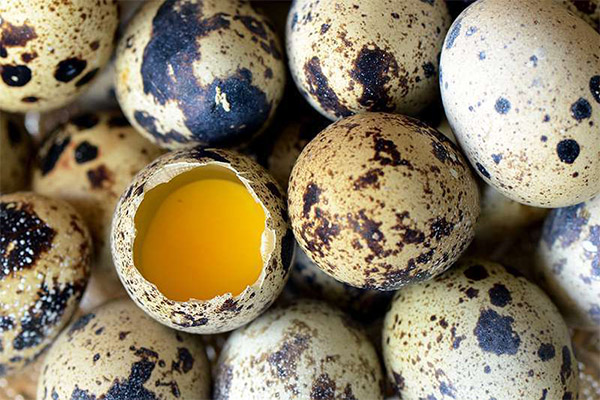
When you eat, you need to eat eggs. Moreover, they are used not only as a dietary product, but also have a very effective therapeutic effect. Raw eggs are especially useful, as they have an antibacterial property, are well absorbed by the body, and have analgesic and anti-inflammatory effects. But in any case, you need to consult your doctor.
Baked apples
With a disease such as colitis, it is allowed to use baked apples, but not more than 1-2 pieces per day. You should also give preference to fruits of sweet varieties, since colitis should avoid excessive acidity. You can bake apples with sugar, honey or cottage cheese. Almost any cooking option for baked fruits is suitable for people with colitis. This dessert will not only alleviate the patient’s condition, but will also be an excellent substitute for harmful sweets, which certainly should not be eaten with colitis.
Pasta
Diet with this ailment involves strict abstinence from dishes that have a high fiber content. Therefore, pasta in any form is prohibited. Eating them can aggravate the manifestations of colitis, since the inflamed large intestine accumulates fiber coming from this product, thereby enhancing the chronic course of the disease.
Mayonnaise
With colitis, fatty and smoked foods are most often the culprits of its occurrence. Therefore, another portion of fatty sauce with the addition of acid and mustard will cause irritation of the intestine, fermentation in it, impaired stool and another attack of pain.
Pea soup
If a person suffers from colitis, he should also carefully use peas in his diet. And it's better to just exclude this culture from food.
«Important: all information on the site is provided exclusively in fact-finding purposes. Before applying any recommendations, consult with a profile specialist. Neither the editors nor the authors are liable for any possible harm caused materials. "

